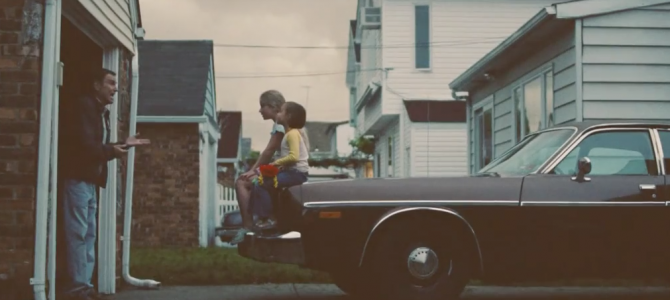Is Amy Schumer a secret conservative plant? If you’re a social conservative watching her new movie, “Trainwreck,” you do have to pause and consider the notion.
Thirty-something Amy Townsend (Schumer) is a hot mess, or a train wreck, if you like, from the movie’s start. We learn Amy’s back story in the opening scene, as we watch her lecherous father Gordon attempt to indoctrinate nine-year-old Amy and her five-year-old sister in the ways of the world. Gordon explains his cheating on their mother in little-girl terms, while justifying his behavior. He asks how they’d feel about playing with only one doll for the rest of their lives. Neither girl considers that an appealing option, and both gleefully cheer, “Monogamy is not realistic!”
In that moment, it seems, Gordon has won. With little information and age-appropriate naiveté, both daughters view his collapsing marriage as he does. What’s interesting is that as the girls mature, they gravitate to nearly polar opposite views of their father, their parents’ marriage, and the good life.
Polar Opposite Views of Men
Amy’s sister, Kim, embraces marriage and motherhood. She chooses to marry a man who already has his own (odd) child. He’s bland and inoffensive, but clearly devoted to his small family, and being Gordon’s opposite was presumably a key part of his appeal.
Meanwhile, Amy continues to behave as if commitment were some pipe dream, acting like an overgrown, self-destructive college student. She drinks too much; she often smokes pot; she dresses like an ad for Frederick’s of Hollywood, and she’s the star of her own long-running, completely unfulfilling porno.
The most regular male presence in Amy’s life is Noam (Dave Attell), the homeless man who panhandles outside her New York City building and makes cracks about her on her walks of shame. Given recent headlines, Noam’s crack about her building not being Planned Parenthood felt particularly unfunny.
Little Grudge Against a Rotten Dad
Amy’s father has multiple sclerosis and lives in an assisted living facility. He apparently believes his deteriorating health is Karmic retribution for his earlier indiscretions, but it’s also not clear that he regrets anything.
Oddly, Amy doesn’t seem to regret her father’s past, either. When offered a chance to reflect on her father, she is disappointed to note that he’s both racist and sexist, but she seems to harbor no ill feelings that he destroyed his marriage and their family. Amy goes so far as to describe him as her “favorite person,” which was striking—and not so easy to accept.
What exactly is there to like about Gordon? How did he make her feel special? By abandoning her? Teaching her that men can’t be counted on? Or by mocking her first stable, adult relationship with Aaron (Bill Hader), the endearingly dorky sports medicine doctor?
Amy Schumer Meets a Man Who Has a Real Father
Amy has no idea how to be in a relationship. She has no idea how to open herself up and be vulnerable with another person. She’s had no model, so when she and her doctor boyfriend have their first fight, she assumes their relationship is finished—and it likely would have been, had Aaron not grown up in an intact family. It’s Aaron who teaches Amy how to disagree constructively. It’s Aaron who shares his parents’ idea that they shouldn’t go to bed angry, and they should sort out their issues together. This is a revelation to Amy.
If Amy were younger, this might be just another growth experience. Given her age, though, it’s more pitiable. She’s a grown woman with the maturity of an emotionally broken girl. Rather than being bold and edgy, Amy’s promiscuity and substance abuse are sad clichés.
“Trainwreck” is supposed to be a rom-com for a new era, but there wasn’t much to laugh at beyond LeBron James’ surprisingly funny scenes. If anything, the heroine’s brokenness tainted the comedy half of this “rom-com” with sadness. The experience is more in keeping with director Judd Apatow’s tendency to make films with counterintuitive family values. Amy’s character made the (perhaps inadvertent) case that if we want happy endings in movies or in real life, both intact families and strong father-daughter relationships matter.









